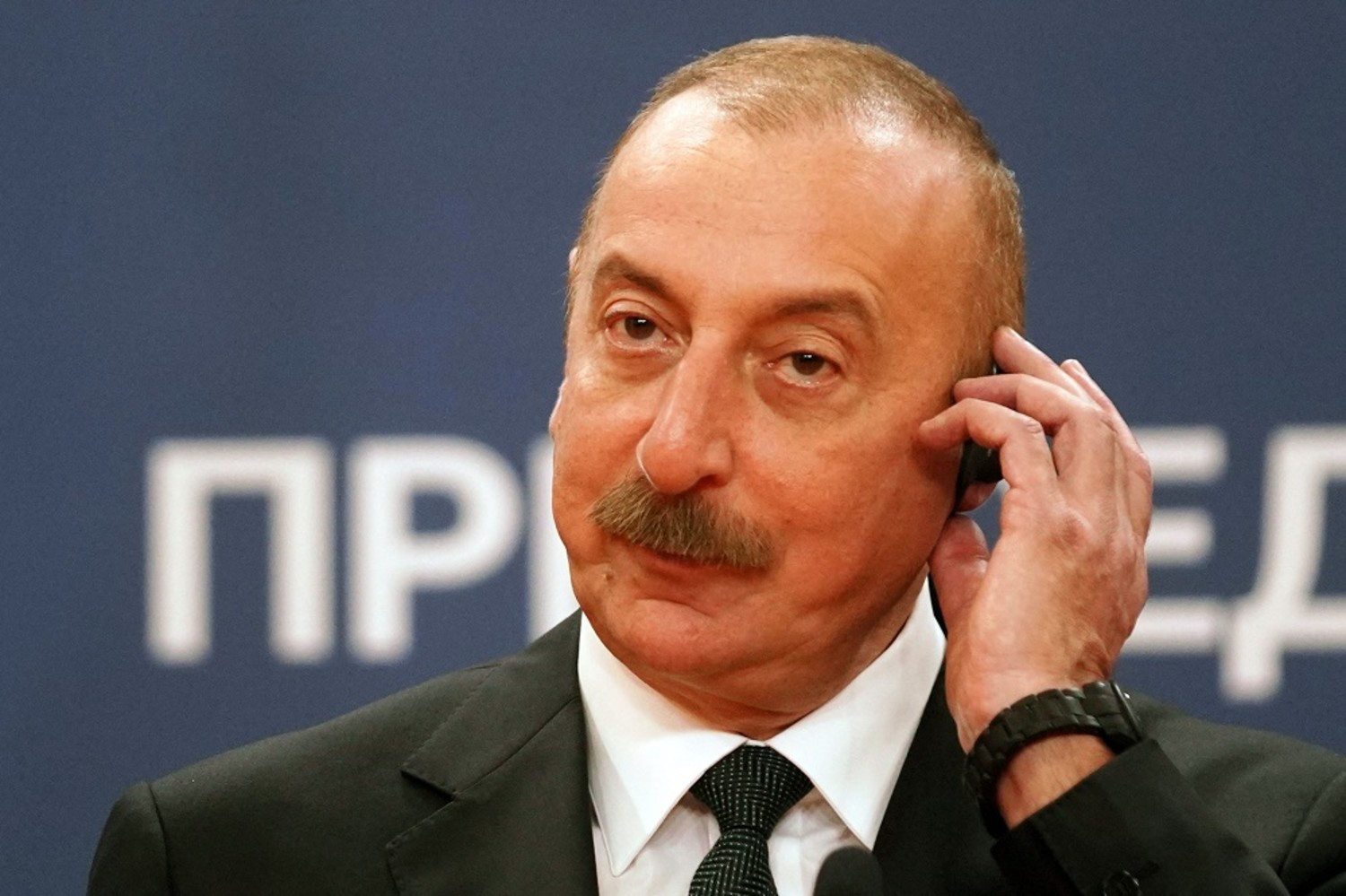Azerbaijan accuses France of stoking 'new wars' in Caucasus

BAKU, AZERBAIJAN (AFP) - President Ilham Aliyev on Tuesday accused France of inciting conflicts in the Caucasus by arming Azerbaijan's longtime rival Armenia, with which it has fought two wars.
Baku and Yerevan have been locked in a decades-long territorial conflict over Azerbaijan's Nagorno-Karabakh region, which Baku reclaimed in September after a lightning offensive against Armenian separatists.
"(France) is pursuing a militaristic policy by arming Armenia, encouraging revanchist forces in Armenia, and laying the groundwork for provoking new wars in our region," Aliyev said in written comments to an international conference in Baku.
In a statement read out by his foreign policy advisor, Aliyev said Paris was "disrupting stability not only in its former and current colonies, but also in the South Caucasus, where it is supporting separatist trends and separatists."
Home to a large Armenian diaspora, France has been routinely criticised by Azerbaijan for harbouring "pro-Armenian bias" in the Caucasus countries' territorial conflict.
Aliyev doubled down on the criticism during a press conference with Iraq's President Abdul Latif Rashid on Monday.
- 'Very destructive role' -
He accused France of "playing a very destructive role in the Southern Caucasus."
"The wrong messages from the French government actually create illusions in the Armenian government... that they can again launch a military aggression against Azerbaijan."
He accused Armenia's government of "thinking about revenge" after Azerbaijan regained control over the Nagorno-Karabakh region this fall.
Armenian Prime Minister Nikol Pashinyan said last week that Yerevan's "political will to sign a peace agreement with Azerbaijan in the coming months remains unwavering."
Aliyev said Azerbaijan recently tabled its proposals for a future peace treaty with Armenia and awaited Yerevan's response.
And in a statement Tuesday, his foreign ministry said it "stands prepared for direct negotiations with Armenia on a bilateral basis to finalize the peace agreement as soon as possible."
Azerbaijan has recently refused meetings under the mediation of the EU or the US, accusing them of favouring Armenia.
"The responsibility to continue the peace process -- including the selection of a mutually acceptable venue or a decision to meet at the state border -- lies with two countries," it said, an apparent refusal of international mediation.
- Stalled peace talks -
Both leaders have said a comprehensive peace agreement could be signed by the end of the year, but internationally mediated peace talks between the ex-Soviet republics have seen little progress.
Aliyev and Pashinyan have also met on several occasions for talks under the mediation of the European Union.
But last month, Aliyev refused to attend negotiations with Pashinyan in Spain, citing French bias.
French President Emmanuel Macron and German Chancellor Olaf Scholz were meant to mediate the talks with EU chief Charles Michel.
There has since then been no visible progress to resume EU-led talks.
Washington had also organised several meetings between the countries' foreign ministries.
Azerbaijan however on Thursday refused further talks, due to what it says is Washington's "biased" position.
The traditional regional power broker Russia -- bogged down in its Ukraine war -- has seen its influence wane in the Caucasus.
In 2020, Moscow brokered a ceasefire that ended six weeks of fighting after which Baku reclaimed swathes of territory controlled for three decades by Armenian separatist forces.
After that conflict, Russian President Vladimir Putin has hosted Aliyev and Pashinyan for several rounds of peace talks, most recently in May.
